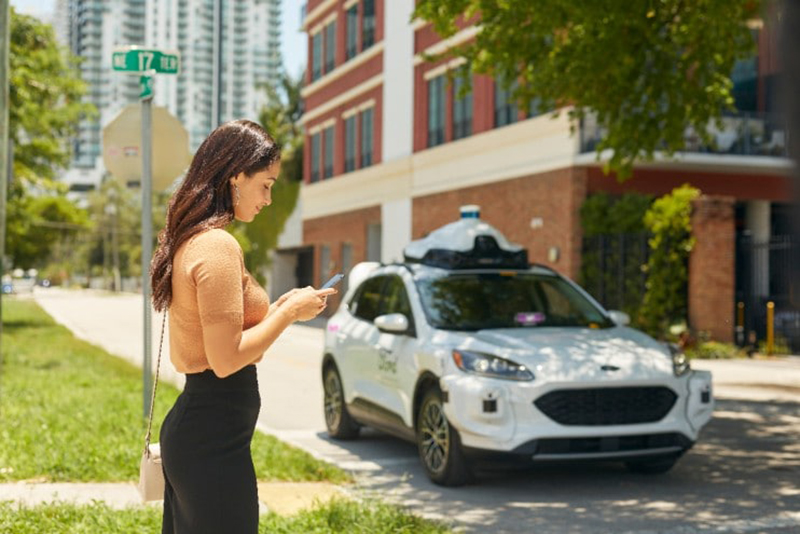
In an industry-first collaboration, Ford Motor Co. in Dearborn, Argo AI, and Lyft are working together to commercialize autonomous ride hailing at scale.
The collaboration brings together all of the parts necessary to create a viable autonomous ride hailing service, including the self-driving technology, vehicle fleet, and transportation network needed to support a scalable business and deliver an exceptional experience for riders.
“This collaboration marks the first time all the pieces of the autonomous vehicle puzzle have come together this way,” says Logan Green, co-founder and CEO of Lyft in San Francisco. “Each company brings the scale, knowledge and capability in their area of expertise that is necessary to make autonomous ride-hailing a business reality.”
Argo AI and Ford will deploy Ford self-driving cars, with safety drivers, on the Lyft network, as part of a network access agreement, with passenger rides beginning in Miami later this year and in Austin starting in 2022.
As vehicles are deployed, Lyft users within the defined service areas will be able to select a Ford self-driving vehicle to hail a ride. The initial deployment phase will lay the groundwork for scaling operations — the parties are now working to finalize agreements aiming to deploy at least 1,000 autonomous vehicles on the Lyft network across multiple markets over the next five years.
“This collaboration is special because we’re executing on a shared vision for improving the safety, access to, and affordability of transportation in our cities,” says Bryan Salesky, founder and CEO of Argo AI in Pittsburgh. “Beyond the link that Lyft provides to the customer, we’ll be able to work together to define where an autonomous service will benefit communities the most and ensure we’re deploying the technology safely.”
The collaboration is designed to scale autonomous vehicle deployment using market and safety data that helps define where self-driving technology can safely serve consumers. As part of the agreement, Argo will use anonymized service and fleet data from Lyft to overcome the challenges faced by other autonomous vehicle companies by focusing on where they can build a sustainable business and validate deployment through localized safety data.
In addition, Lyft will receive 2.5 percent of the common equity of Argo AI as part of the licensing and data access agreements to collaborate on the safe commercialization of autonomous vehicles.
“Argo and Ford are currently piloting, mapping, and preparing for commercial operations of autonomous vehicles in more cities than any other AV collaboration, and this new agreement is a crucial step toward full commercial operations — the addition of Lyft’s world-class transportation network,” says Scott Griffith, CEO of Ford Autonomous Vehicles & Mobility Businesses.
“These three companies share a belief that autonomous vehicles will be a key enabler for a cleaner, safer, and more efficient urban mobility landscape. This is the beginning of an important relationship between three dynamic companies ultimately aiming to deliver a trusted, high-quality experience for riders in a multi-city large scale operation over time.”
In order to support self-driving vehicle deployments at scale, Ford has established a presence in Miami, Austin, and Washington, D.C. This includes operations to support commercial fleets, including fueling, servicing, and cleaning.
Ford also has established community relationships, including working closely with city leaders, to provide valuable mobility solutions to meet their unique needs.
Lyft was founded in 2012 and is one of the largest transportation networks in the United States and Canada. The company recently closed the sale of its self-driving technology division, Level 5, to a subsidiary of Toyota, along with commercial agreements to advance the safety and commercialization of autonomous driving technology. Lyft also has an agreement with Motional, a joint venture that includes Hyundai, to deploy fully autonomous cars on the Lyft network in 2023.
Argo AI is developing self-driving technology in partnership with leading automakers, including Ford and Volkswagen Group, to make getting around cities safe and easy. Argo AI employs more than 1,300 people with engineering centers located in Dearborn; Cranbury, N.J.; Palo Alto; and Munich. Argo is currently testing autonomous vehicles on public roads in Miami; Austin; and Washington D.C., as well as in Pennsylvania, Michigan, and California.





